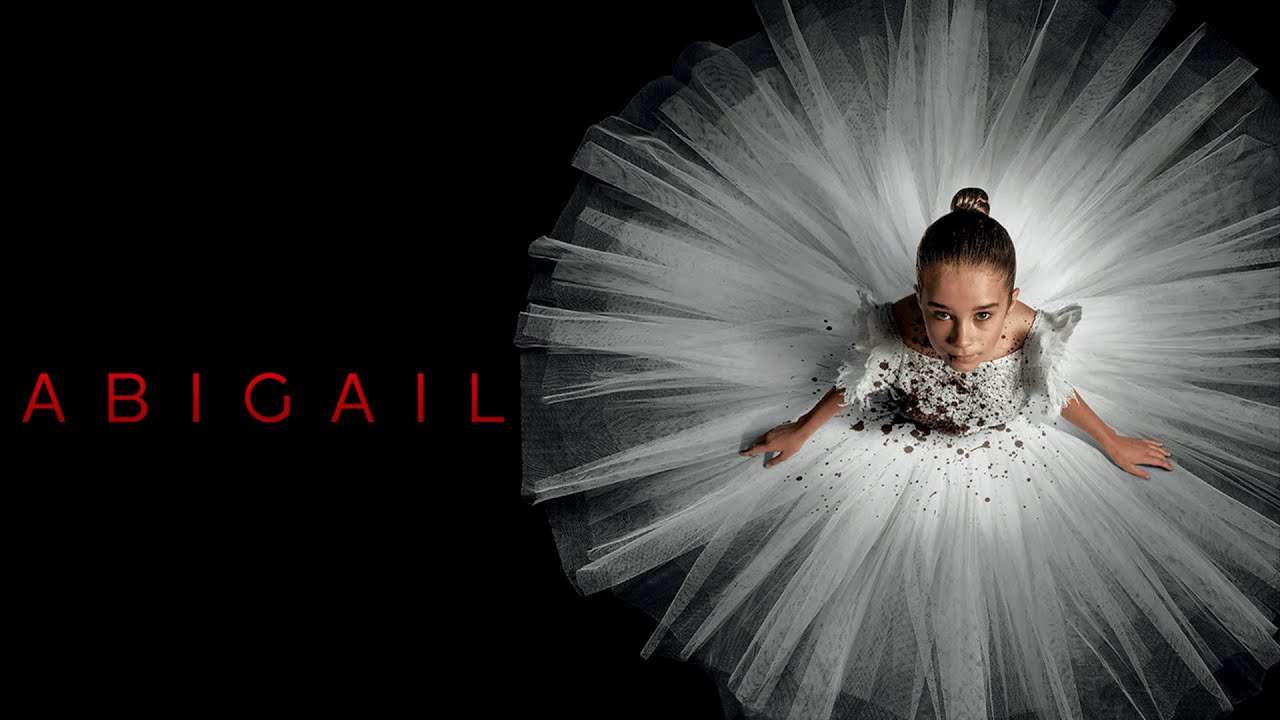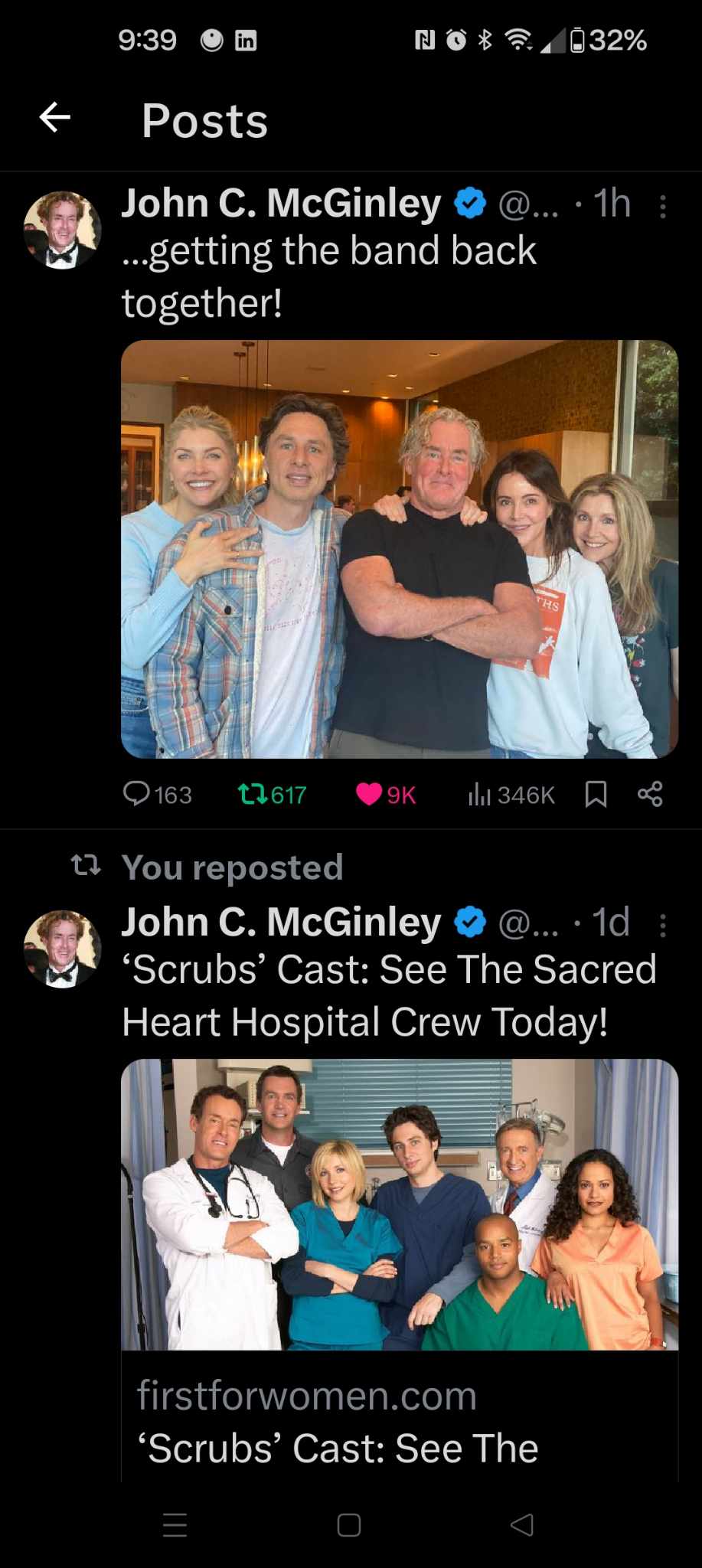Iconic screenwriter-director-producer James L. Brooks, whose acclaimed films include Terms of Endearment, Broadcast News, and As Good As It Gets, has been named the recipient of the Writers Guild of America West’s 2018 Laurel Award for Screenwriting Achievement in recognition of his extraordinary career and body of work. He will be honored at the 2018 Writers Guild Awards West Coast ceremony on Sunday, February 11, at The Beverly Hilton in Beverly Hills.
“James L. Brooks looms large for writers in our business. His movie scripts walk a razor’s edge; they are comedies that are tinged with tragedy, they have moments of absurdity mixed with sharply observed truths. The beauty of his work is that you never hear the writer behind it, his characters talk like real people and his scripts feel like life. We at the WGAW Board of Directors consider it our honor to give him this award,” said WGAW President David A. Goodman.
One of the most revered and influential creative artists in film and television, Brooks is a three-time Academy Award winner, an 18-time Emmy Award winner, and four-time Writers Guild Award winner.
Brooks launched his TV writing career during the mid-’60s, landing a gig writing for CBS News broadcasts based in New York, before moving to Los Angeles to pen several episodes of The Wolper Specials documentary series. He then segued into scripted programming, writing for numerous TV series, including Men in Crisis, My Mother the Car, My Three Sons, The Andy Griffith Show, and That Girl, which earned him his first WGA Episodic Comedy nomination in 1968.
A WGAW member since 1965, Brooks soon emerged as a major force in television, going on to create or co-create, write, and produce numerous hit television series that helped define an era, including the ground-breaking The Mary Tyler Moore Show (1970-77, Created by Brooks and Allan Burns) – one of the first primetime TV series to feature an independent working woman at its center – and its trio of hit spin-offs, Rhoda (1974-78, Created by Brooks & Allan Burns, Developed by David Davis & Lorenzo Music), Lou Grant (1977-82, Created by Brooks and Allan Burns and Gene Reynolds, Developed by Leon Tokatyan), and Phyllis (1975-77, Created by Ed Weinberger & Stan Daniels) – as well as Taxi (1978-83, Created by Brooks and Stan Daniels and David Davis and Ed Weinberger).
After an extensive and prolific career in television during the ’60s and ’70s, Brooks made the transition to the big screen at the close of the decade, penning the screenplay for 1979’s Starting Over, based on the novel by Dan Wakefield, which he co-produced with Alan J. Pakula, which earned Brooks a WGA screenplay nomination (Comedy Adapted from Another Medium).
He went on to write, direct, and produce the acclaimed 1983 dramedy classic, Terms of Endearment, adapted from the novel by Larry McMurtry. The film, which garnered eleven Oscar nominations, earned Brooks three Academy Awards, including Best Writing (Screenplay Based on Material from Another Medium), Best Director, and a Best Picture Oscar, as well as a Writers Guild Award for his screenplay (Best Comedy Adapted from Another Medium) and a Golden Globe for Best Screenplay. Terms co-stars Jack Nicholson and Shirley MacLaine also earned Best Actor and Best Actress Oscars for their performances.
Next, he wrote, directed, and produced 1987’s Broadcast News, a sharp, incisive behind-the-scenes glimpse of a network TV news room based on his own experiences, which won the New York Dramas Critics Award for Best Picture and Best Screenplay, received Oscar noms for Best Picture and Best Original Screenplay, and earned WGA and Golden Globe screenplay noms.
Through his own Gracie Films production banner, established in 1984, Brooks executive produced the feature film Say Anything…, which was Cameron Crowe’s directorial debut, produced The War of the Roses (screenplay by Michael Leeson) and produced Big with Robert Greenhut, which was Anne Spielberg & Gary Ross’ first screenplay.
Brooks made a leap to the stage, writing, directing, and producing his debut play, “Brooklyn Laundry,” which premiered in Los Angeles in 1990. That same year, Brooks’ production company, Gracie Films, inked an overall deal with Sony Pictures. He produced two new series for ABC – primetime animated series The Critic and Phenom – as well as directed the innovative musical dramedy feature film, I’ll Do Anything. In 1996, Brooks executive produced, Bottle Rocket, the debut film co-written and directed by Wes Anderson, and produced Jerry Maguire, written and directed by Cameron Crowe, sharing a Best Picture Oscar nomination.
In 1997, Brooks co-wrote, produced, and directed the box-office smash, As Good As It Gets (Screenplay by Mark Andrus and James L. Brooks, Story by Mark Andrus). The well-received film received seven Academy Award nominations, including Best Picture and Best Writing (Screenplay Written Directly for the Screen), as well as Best Actor and Best Actress wins for co-stars Jack Nicholson and Helen Hunt. Brooks also earned a Writers Guild Award (Best Screenplay Written Directly for the Screen), shared with co-screenwriter Andrus.
Following up the critical and commercial success of As Good As It Gets, Brooks wrote and directed the 2004 dramedy Spanglish, and in 2007 Brooks co-wrote and produced The Simpsons Movie, the big-screen version of Fox’s hit animated series, the longest-running scripted series on television to date. In 2010, Brooks wrote and directed the romantic comedy How Do You Know, and most recently produced the 2016’s Edge of Seventeen, written and directed by Kelly Fremon Craig, making her directorial debut.
Brooks’ other TV writing credits include creating the trail-blazing high school drama Room 222, which aired from 1969-1974 and was notable as one of the first TV series to feature a black male in a lead role, as well as co-creating The Tracy Ullman Show (Created by Brooks, Jerry Belson, Ken Estrin, Heide Perlman), a boundary-pushing comedy-variety series which ran from 1987-1990 and debuted The Simpsons characters in a series of inspired animated shorts, which ultimately led to the launch of The Simpsons animated TV series (Created by Matt Groening, Developed by Brooks, Matt Groening, Sam Simon) that would leave an indelible mark on pop culture, and the telefilm, Thursday’s Game, which he wrote and produced. Brooks was also part of the writing team for TV’s Stand Up to Cancer telethons in 2008 and 2010, which raised millions to combat cancer.
In addition to his acclaimed film career, Brooks has received numerous accolades for his work on television: In addition to multiple Emmy noms for his work on The Mary Tyler Moore Show, including noms Outstanding New Series and Outstanding Comedy Series for its debut season, and WGA Episodic Comedy noms for MTM in 1973 and 1978, Brooks earned an Emmy for Outstanding Writing Achievement in Comedy (shared with Allan Burns) in 1971, a trio of shared Emmys for Outstanding Comedy Series in 1975, 1976, and 1977, as well as a ’77 Emmy for Outstanding Writing in a Comedy Series for the series’ memorable final episode, “The Last Show” (shared with co-writers Burns, Ed Weinberger, Stan Daniels, David Lloyd, and Bob Ellison). In addition, MTM spin-off shows – from sitcom (Rhoda) to drama (Lou Grant) – earned Brooks Emmy noms for Outstanding Drama Series (Lou Grant, 1978) and Outstanding Comedy Series and Outstanding Writing in a Comedy Series (Rhoda, 1975).
Brooks followed his MTM run by garnering three Outstanding Comedy Series Emmys for the critically acclaimed comedy series Taxi in 1979, 1980, and 1981. In addition to multiple Emmy noms, Brooks shared an Emmy win for Outstanding Variety, Music or Comedy Program for The Tracey Ullman Show in 1989, as well as an Emmy for Outstanding Writing in a Variety or Music Program in 1990. As a co-developer and executive producer of Fox’s The Simpsons, Brooks has received numerous Emmy noms over the show’s decades-long run and earned ten shared Emmys for Outstanding Animated Program between 1990 and 2008.
In 1998, Brooks received the WGAW’s Paddy Chayefsky Laurel Award for Television Writing Achievement, the Guild’s highest honor for television writing, shared with his frequent TV writing partner Allan Burns. In 2006, Brooks received the WGAE’s Herb Sargent Award for Comedy Excellence, given to a writer who “embodies the spirit, commitment, and comic genius” of the late Sargent.
In 2007, he received the Gold Derby TV Award for lifetime achievement, in 2015 he received TCA’s Career Achievement Award, and in 2017 received the PGA’s Lifetime Achievement Award in Television for his prolific career.
Next up, Brooks is in the home stretch to finish his latest screenplay.
The WGAW’s Laurel Award for Screenwriting Achievement is awarded to a Writers Guild member who has advanced the literature of motion pictures and made outstanding contributions to the profession of the screenwriter. Past recipients include Elaine May, Oliver Stone, Harold Ramis, David Mamet, Robert Towne, Tom Stoppard, Paul Mazursky, Lawrence Kasdan, Eric Roth, and Steven Zaillian.

Movie
‘Abigail’: Bite Me Harder Tiny Dancer

A gang of misfit kidnappers find their tiny target far more bloodthirsty than they bargained for!
So, unfortunately, the trailers gave it away and let’s be real that’s why most of us are here, the knowledge that the kidnap victim Abigail (Alisha Weir), codenamed by the would-be kidnappers appropriately as ‘tiny dancer’, is in fact, a vampire. Not a spoiler, point of fact, one of the film’s actual great selling points. And the reactions from the misfit club when faced with a real actual f*cking vampire, range hilariously from the blunt “no such thing as vampires” all the way to, “Are we talking True Blood or Twilight rules or what?” all while covered in buckets and buckets of blood.
Anyway, the gang manages to subdue and abscond with the aforementioned Abigail, in a pre-prepared duffle bag, like you do, and converge to a new location, a house oddly similar to the one she was just taken from. Welcomed and given codenames by a man who introduces himself as Lambert (Giancarlo Esposito), our misfit club is told to simply hold down the fort in this strange old house with the girl chained up in a room and one person to attend her, for twenty-four hours, and they’ll all get paid.
As inevitable as the tides, the dopey druggie Dean (Angus Cloud) is the first to die, and we’re going to give that death-style points for inspiring terror right off the bat. The very controlling Frank (Dan Stevens, holy crap yes that is the guy from FXs Legion) is also of course the most suspicious – of everyone around him, sure, but also he himself is totes sus. We don’t learn terribly much about the musclebound tank who gets dubbed Peter (Kevin Durand), he’s your pretty typical little-brains-heart-of-gold muscle-for-hire any proper gang needs, right down to the bottle problem. Sammy (Kathryn Newton), well, even for being a purported hacker-type, she has, like, reality issues. Rickles (William Catlett), he’s arguably the most dangerous among them, ex-military and yet somehow here and involved in kidnapping for a few mills. Joey (Melissa Barrera) is our Final Girl, and though she has the inevitable problems in her recent past, she seems more capable of doing the hard thing and still somehow empathizing at the end of the day. Must be her burning desire to get back with her son.
The fit hits the shan pretty quickly, and Abigail morphs from tiny dancer to tiny monster, though honestly, the way Abigail spoke the entire time in the film, if the ‘nappers had been paying close enough attention, would have been a solid clue. The performance from Alisha Weir as Abigail is incredible, as she literally dances a fine line between comedy, tragedy, and outright monstrosity. With a face full of makeup and the force of a tiny tornado to back it up, Weir brings to mind the great performances of the vampires in 30 Days of Night who saw the practicality in the need to trap their food, but also, play with it a bit first before feasting! Anything else would give away the absolute fun time that is Abigail, so you should go see it, out in theaters now!
TV
Scrubs Reunion: The Band Gets Back Together

Fans of the beloved medical comedy series Scrubs were recently treated to a thrilling surprise when John C. McGinley, who portrayed the iconic Dr. Perry Cox, dropped a photo on Twitter hinting at a potential reunion project. The image, showing McGinley alongside his former co-stars, sparked a wave of excitement and speculation among fans who have been longing for more adventures with the beloved Sacred Heart Hospital staff.
While details about the reunion project are still scarce, the mere possibility of seeing the gang back together again has sent waves of nostalgia through fans who fondly remember the show’s original run from 2001 to 2010. Scrubs was not just a sitcom; it was a heartfelt exploration of friendship, love, and the chaotic world of medicine, all wrapped up in a quirky and often hilarious package.

At the heart of the show was the bromance between JD (played by Zach Braff) and Turk (played by Donald Faison), whose antics and deep bond served as the emotional anchor for the series. Their dynamic, along with the sage wisdom (and relentless sarcasm) of Dr. Cox, provided viewers with memorable moments that have stood the test of time.
As we eagerly await more news about the Scrubs reunion project, one thing is for sure: it’s time to dust off those old DVDs, rewatch our favorite episodes, and get ready to welcome back our favorite gang of doctors, nurses, and janitors for what promises to be a memorable reunion.
But Scrubs was more than just its main characters. The supporting cast, including the eccentric Janitor (played by Neil Flynn), the neurotic Elliot (played by Sarah Chalke), and the wise-cracking nurse Carla (played by Judy Reyes), each brought their own unique flavor to the show, creating a rich tapestry of characters that fans grew to love.
While the photo shared by McGinley has fueled speculation about what the reunion project might entail, whether it’s a one-off special, a new season, or something else entirely, one thing is certain: fans are eagerly awaiting any opportunity to dive back into the world of Sacred Heart Hospital.
In an age where reboots and revivals are commonplace, Scrubs stands out as a series that has the potential to recapture the magic that made it a fan favorite in the first place. With its blend of humor, heart, and unforgettable characters, a reunion project has the opportunity to not only satisfy longtime fans but also introduce a new generation to the joys of life at Sacred Heart.
Streaming
‘The Hunger Games: The Ballad of Songbirds and Snakes’: Rebellion with a cause

The story of the rise of Coriolanus Snow, from teenage Capital City pawn to rising Dictator of the Hunger Games!
Apparently no one out here in post-apocalyptic Panem has heard of irony and so they name their children things like Coriolanus (Tom Blyth), Tigress, and further off in Hunger Games lore, after swamp plants like Katniss. Corio’s father was a legendary general and that is pretty much the only reason young Snow and his meager family of grandmother called Grandma’am (Fionnula Flanagan) and sister Tigress (Hunter Schafer) are tolerated here in the Capital City at all.
Most of the snotty youngsters at the academy won’t let Snow forget how far his family has fallen, but he’s generally not concerned with them. What is concerning is the strong disapproval of the drugged-up Dean Casca Highbottom (Peter Dinklage) and the creepy attention of Dr. Volumnia Gaul (Viola Davis) as she lurks in the classroom sniffing out talent. The Dean feels very strongly the annual Hunger Games should end, while Gaul is violently adamant that not only do the Games continue, but that they get as much more attention as possible. And young Snow is stuck in the middle, when the yearly prize money normally awarded to the academy student with the best grades gets switched out for, you guessed it, the student that can make this years’ Hunger Games as entertaining as possible.
Whilst the students are protesting this sudden change, the annual Reaping is about to commence, and big shock and surprise, Corio’s candidate from District 12 Lucy Grey Baird (Rachel Zegler) is chosen as a Tribute. This is where the film begins to really take off on musical wings, for as it turns out, Lucy Grey can sing. Boy, can that gal sing! She can sing, she can play guitar, she can work a crowd, she can calm things down, she can fire ‘em up too! And Corio, being no dummy himself, instantly plots ways to use his Tributes amazing voice to draw attention to her, and admittedly his own, plight!
Though far too many people sneer at the idea, Corio takes his position as Mentor to his Tribute seriously enough to sneak onto the tram taking the Tributes to their habitat, which turns out to be a completely appropriate moniker, as this year the Tributes are held before the Hunger Games in a large zoo habitat so the weatherman ‘Lucky’ Flickerman (Jason Schwartzman), host of this years games, can MC the hell out of everything up close and personal!
What happens at this years Hunger Games and the subsequent consequences to both Corio and Lucy Grey is actually only half the story, and the movie. Coriolanus has always had to be opportunistic, but learning to be absolutely ruthless when necessary under the tutelage of Dr. Gaul, who basically thinks it’s always best to be merciless, is an eye-opening education indeed. Even after they’ve both been consigned to military service and his friend Sejanus Plinth (Josh Andres Rivera) decides to finally rebel, Corio and Sejanus continue to deceive each other and themselves, to accomplish their separate goals. Not even the love Corio swears he feels for Lucy Grey can save him, or them, from the adamant absolute necessity of the Hunger Games continuing. And after all that’s happened, Coriolanus Snow has gotten a terrific education in the best way to be the absolutely ruthless next Hunger Games advocate, and oh yeah, President of Panem.
The movie does itself no favors by trying to stuff not one but two major storylines and a bunch of side storylines sadly introduced and then ignored, into the film. It would have been entirely possible to turn Ballads of Songbirds and Snakes into two different movies, separated between feathers and scales if you like, and do justice to the major storylines in both. Blyth gives a fine performance as a young Coriolanus Snow, but the fact that President Snow is played by Donald Sutherland in all three of the Hunger Games films means Blyth has incredibly large shoes to fill. Rachel Zegler as Lucy Grey is absolute fire, and yes the actress did sing the songs in the film herself, including the Hunger Games franchise epic song, ‘The Hanging Tree’. Every time Lucy Grey opens her mouth and sheer soul-searing music comes out, it provides a distinct counterpoint to the soul-crushing ambition of Coriolanus Snow and further demonstrates the District and Caste separation Hunger Games is known for. And if, by the end of the film, Coriolanus Snow has come to agree that the Hunger Games must continue but perhaps under his own auspices, he has no one but himself to blame when another younger but still rebellious female blows it all up in his face!
Choose rebellion or conformity for yourself in The Hunger Games: The Ballad of Songbirds and Snakes!


